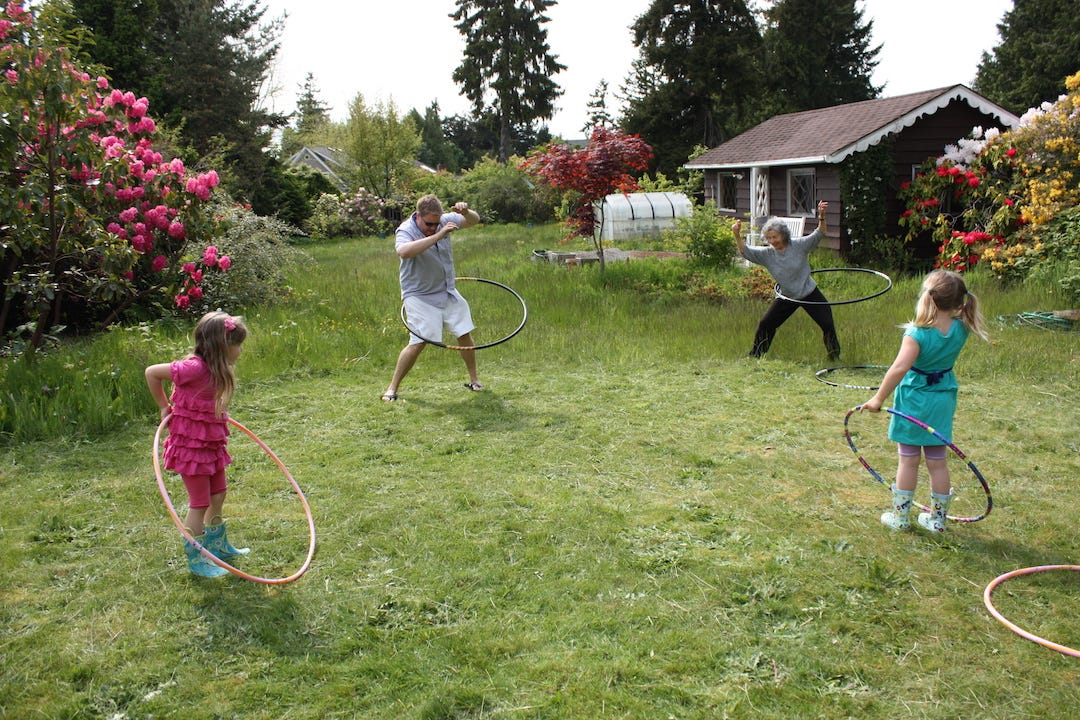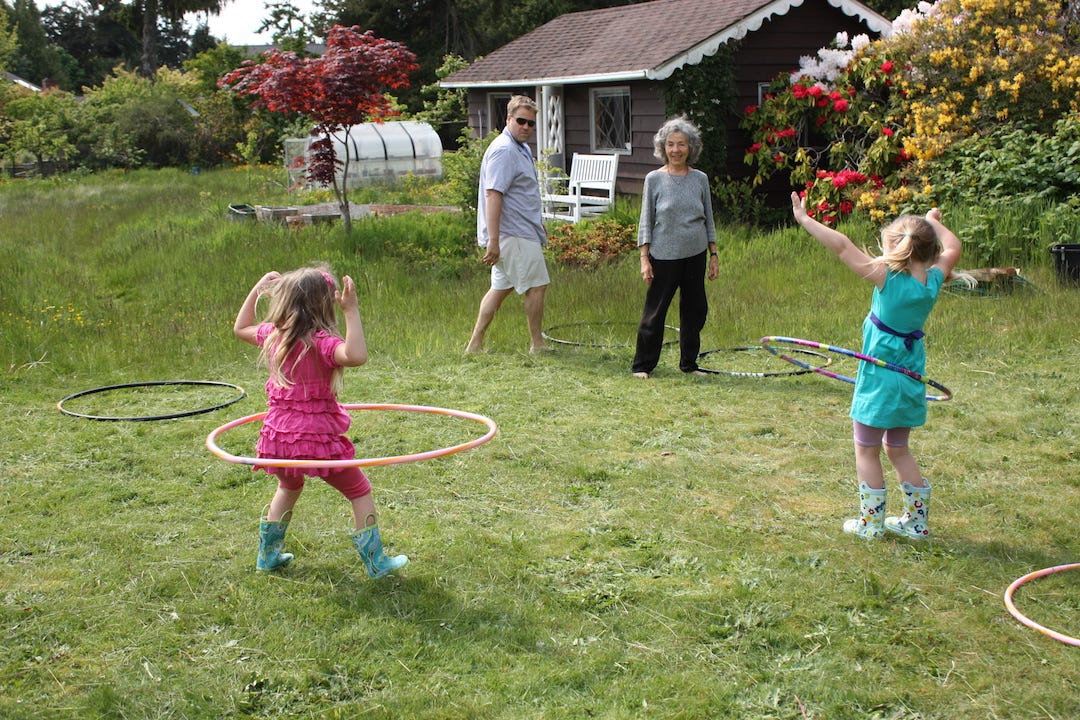How do you play?
For quite a long time, I thought I might be defective when it came to play and fun stuff.
It’s not that I didn’t like play, it’s just that I don’t do much of it. And the things other people think are fun in that way often don’t appeal to me. I don’t really like board games, I don’t love competitive sports. I wondered if perhaps I didn’t get the play gene. Or perhaps my childhood, which had more adult worries than average, didn’t lend itself to playfulness.
There are things I do find fun—I like to dance, I like making things, I like hiking—but the things most people consider “play” were not on my list. Was there something wrong with me?
But I recently discovered something that put this all in context and made me feel so much better.
I came across the work of Dr. Stuart Brown in my friend Karen Walrond’s new book Radiant Rebellion (which I will be telling you more about, because it’s wonderful). I learned a lot from the book, but one thing that shifted everything for me was the idea that there are different play styles. According to Dr. Brown, a psychiatrist and founder of the National Institute for Play, humans have eight different play personalities. They are as follows:
The Joker: play revolves around some sort of foolishness or clowning.
The Competitor: play involves competing or winning—or watching as a fan. Doesn’t have to be just about sport, a competitor may try to win a social situation as well.
The Creator: play is found in making things—arts, crafts, but also making something work, making something beautiful, making something better.
The Collector: play is found in gathering interesting collections—items (coins, antiques, cars) but also experiences, such as travel for the purpose of experiencing something.
The Director: play is found in planning and executing—be it a theater production or a dinner party, directors love to create a scene, experience, or event.
The Explorer: play is found in exploring new places, but also exploring intellectual or artistic territory—researching, seeking out new points or view or artistic experiences.
The Kinesthete: play is found in movement—athletics, but also dance, swimming, walking. They may play sports for pleasure, but not for competition.
The Storyteller: play comes from imagination and sharing it—writers, cartoonists, screenwriters. They may also find great joy in reading and watching movies created by others, as use of imagination is the biggest joy.
According to this, I DO like play—just not in the ways I was thinking of. I am not a Joker and I don’t like competition, but those are only two ways to play. I rate quite highly on the other six.
I LOVE to explore—be it a beach a new town or a country—I like movement such as dance or hiking or swimming. I like planning experiences (so long as I am not doing all the work alone) and I make things and tell stories for a living! I even dabble a tiny bit in collecting.
When it comes to play, I get 6/8. Which is far from defective.
Obviously, you don’t need to know these categories in order to play and have fun. You could just follow the things that bring you that sort of pleasure. But I find it helpful to think about, if only to zero in on what it is that makes me happy, so I can make sure to weave more of it into my life.
I find it interesting there is a whole world of quieter play behind the more obvious joker and competition-based experiences. I hadn’t realized that my love of reading, of making something beautiful, of cutting flowers and arranging them in the house could be considered a form of play.
And play is important—Dr. Brown would say it’s essential. “Without play,” he says, “we don’t have that deep engagement in life and our own future and our authentic self.”
The other thing I will take away from Dr. Brown is this quote:
“The opposite of play is not work, it’s depression.”
I don’t do New Year’s resolutions, but I am definitely committing to including more play in my life. What about you? Which of the play personalities do you relate to? What are your favorite ways to play?




Definitely a creator here, with a healthy dose of storyteller and explorer. I loved reading this installment of your newsletter so much -- the timing of it's arrival to my inbox is perfect. I've been saying all week that I am done "adulting," and find myself avoiding event the simplest, most mundane tasks. The quote "the opposite of play is not work," is very on target, and clearly I need more play. Thank you (as always)!
Thanks for this lovely and inclusive perspective on play, Tara. I’ve often carried the belief that I wasn’t very playful, but, like you, I score pretty well overall. Today I will go to Jazzercise and lose myself in an hour of dance routines. There’s also some exploring and creating planned in my day.